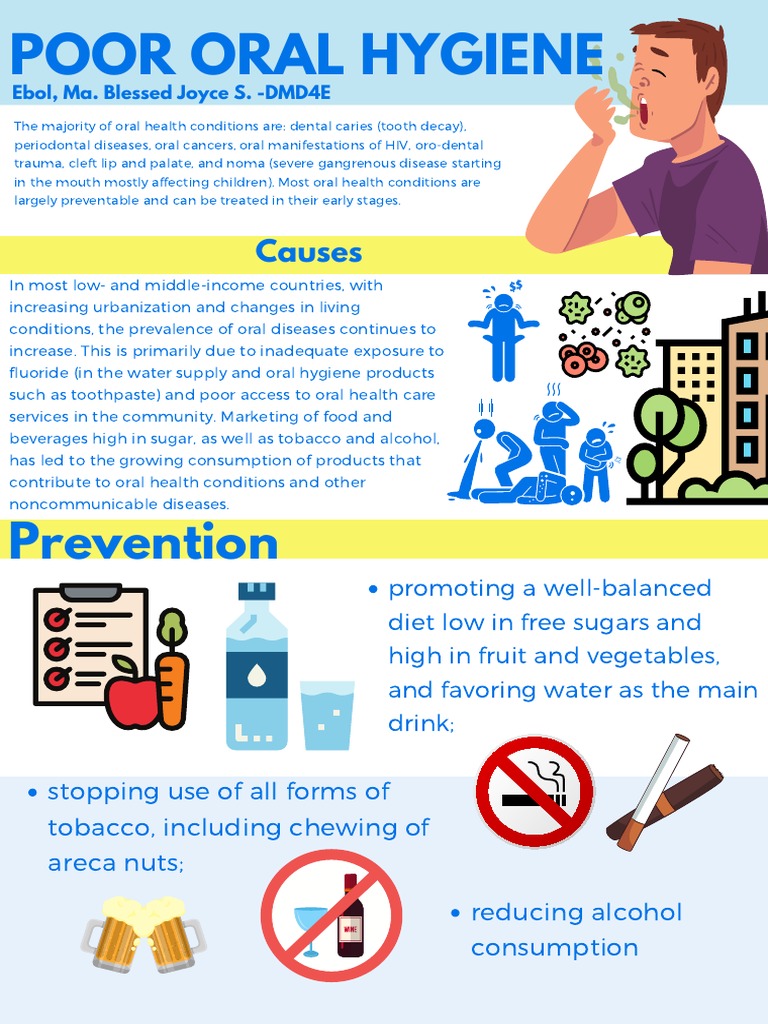

Poor oral hygiene is a significant contributor to a wide range of health problems extending far beyond just dental issues. Imagine a hidden enemy silently undermining your overall health—that’s the impact of neglecting your oral care. This article will delve into the surprising ways poor oral hygiene impacts your overall health and well-being. We’ll explore the various systemic consequences of neglecting your oral hygiene and provide actionable solutions to improve your oral health and general wellness. We will cover the connection between oral health and heart disease, diabetes, and other chronic illnesses, along with practical tips and strategies for maintaining good oral hygiene.
The Surprising Link Between Oral Health and Systemic Diseases
The Role of Oral Bacteria
Oral bacteria, if left unchecked, can trigger a cascade of inflammatory responses throughout the body. This inflammation has been linked to various health issues, creating a complex web of connections between your mouth and your body. Poor oral hygiene, characterized by inadequate brushing and flossing habits, allows plaque buildup and the proliferation of harmful oral bacteria. These bacteria can enter the bloodstream and trigger an inflammatory response that affects distant organs and systems. Studies have shown a strong correlation between periodontal disease, a serious gum infection, and an increased risk of cardiovascular disease. The inflammation caused by this oral infection may contribute to the development of heart disease, stroke, and other serious conditions. The exact mechanisms behind this correlation are still being researched, but the consistent findings strongly suggest a need for proactive oral care.
The Impact on Cardiovascular Health
Inflammation and Blood Vessels
The link between poor oral hygiene and cardiovascular disease is becoming increasingly clear. Studies suggest a strong correlation between periodontal disease and an increased risk of heart disease. This correlation may be explained by the inflammatory response triggered by bacteria from the mouth entering the bloodstream. This inflammatory process can damage blood vessels, promoting atherosclerosis—the buildup of plaque in the arteries—a key factor in cardiovascular disease. Furthermore, individuals with poor oral hygiene may have higher levels of C-reactive protein (CRP), a marker of inflammation. Elevated CRP levels are linked to an increased risk of heart attacks and strokes. Thus, maintaining excellent oral hygiene is paramount for cardiovascular health.
The Connection to Diabetes
Oral Health and Blood Sugar Control
Studies have demonstrated a significant correlation between oral health and diabetes management. Periodontal disease, a common condition associated with poor oral hygiene, can exacerbate blood sugar control issues in individuals with diabetes. The inflammation from gum disease can make it more challenging to regulate blood sugar levels, potentially leading to complications like diabetic retinopathy, nephropathy, and neuropathy. In fact, research suggests that improving oral hygiene can aid in better blood sugar management for diabetic patients. Controlling oral bacteria is therefore essential for managing blood sugar levels effectively. Early intervention for gum disease can mitigate the negative impact on blood sugar regulation, contributing to overall health management.
The Effect on Respiratory Health
Oral Bacteria and Lung Infections
Poor oral hygiene isn’t limited to impacting cardiovascular or metabolic health. It can also contribute to respiratory problems, as oral bacteria can be inhaled into the lungs. This can potentially lead to infections, particularly in individuals with underlying respiratory conditions. Furthermore, the inflammatory response associated with periodontal disease may worsen existing respiratory conditions, affecting lung function. Maintaining proper oral hygiene therefore plays a role in preserving pulmonary health, particularly for those prone to respiratory issues. This suggests that regular dental care can be a preventative measure for various respiratory-related ailments.
Related Post : Common Dental Problems That Often Go Unnoticed Until It’s Too Late
Addressing the Issue of Poor Oral Hygiene
Practical Strategies for Improved Oral Health
Fortunately, the negative impact of poor oral hygiene can be mitigated through proactive and consistent oral care. Maintaining good oral hygiene practices, such as regular brushing, flossing, and routine dental check-ups, is key. Regular brushing should be done twice daily for at least two minutes each time. Flossing is also essential, removing plaque and food particles from between teeth. Using mouthwash can further assist in reducing bacteria levels. Visiting the dentist for regular check-ups and cleanings is crucial in detecting and addressing potential problems early on. Professionals can identify early signs of gum disease, ensuring prompt treatment and preventing more severe complications.
In conclusion, poor oral hygiene significantly impacts overall health and wellbeing, extending far beyond just dental issues. Maintaining good oral hygiene practices, such as regular brushing, flossing, and dental check-ups, is crucial for preventing various systemic health problems. By understanding the intricate connections between oral health and general wellness, individuals can prioritize their oral care and take proactive steps towards achieving and maintaining optimal health. Schedule an appointment with your dentist today to discuss how you can improve your oral hygiene and overall health!